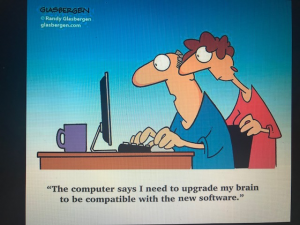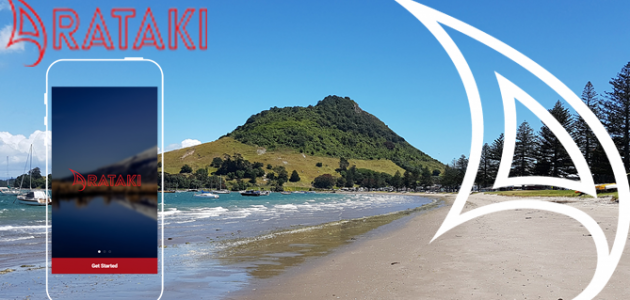11 Dec How Digitally Prepared is our Workforce?
“Invest in people and in culture. That way you can have an organisation that can adapt and change for the future” Chris Buxton, Stats NZ
Over the course of 2018, I had an opportunity to do some research into the impact of Emerging and Disruptive Technology and what that means for our workforce. This will be the first of a series of articles in which I share information from the research. One area that I examined in a bit more depth, was the digital preparedness of our workforce and readiness for the future of work. With cloud computing, we are able to work most places where we can be connected to the internet. For our team at Toi Tangata, this has enabled us to have 3 part time staff based in Whangarei, Tauranga, and Otane, Hawkes Bay.
With the fourth industrial revolution taking shape around us, the potential opportunities and challenges of emerging disruptive technology (EDT) and its application in Māori Public and Community Health are gaining momentum. Within the sector, it has the potential to help open new and more effective ways of working, and make a difference to health outcomes. By understanding and using the increasing digital tools available new opportunities for ways of working and resources to promote wellbeing emerge.
My research findings (from a small online survey, stakeholder consultation and a review of literature) reinforced the need for us to build our digital literacy skills. By keeping pace with technological changes and building our digital literacy skills, this will help ensure that we will be more effective in the development of the digital health literacy information we in turn share with our workforce and communities.
Within health, technology that supports whanau to look after their own health and take action early with lifestyle changes and treatment is increasingly developing and available. Examples include wearable devices such as Fitbits and accelerometers using smartphone GPS; Facebook with education and information, and economic marketing opportunities to market whanau services and products; access to online banking platforms; use of real time data analytics (for example kapa haka live streaming through Māori TV Facebook), the use of Zoom for meetings across Aotearoa (and the world), accessing live presentations through webinars /YouTube.
Software such as Whanau Tahi (and with the permission of the whanau) enable information to be shared amongst a range of govt service providers and whanau ora providers without whanau having to repeat themselves with every social service, health and government provider or service they may engage with.
Addressing digital inclusion, building digital capacity skills, and addressing as employment issues as a result of job displacement by EDT, is an important kaupapa for organisations going forward. The importance of future planning (now) and digital literacy development by tribal, urban Maori and organisations requires more understanding and commitment.
There are a number of terms currently used in the context of digital literacy. Digital capability are the skills required for New Zealanders living and working in a digital economy; Digital inclusion refers to (New Zealanders) having equitable opportunities to participate in society using digital technologies. While access to technology has been a key focus, motivation, skills and trust are also key factors in inclusion. Digital fluency is another term used by the Ministry of Education, in reference to the individual’s ability to decide when and why to use specific technologies.
To be ‘digitally capable,’ a report from the UK identified five areas of digital literacy. These include the ability to digitally manage information, to effectively use digital technology as a communication tool, utilise digital technology to undertake transactions, and for both problem-solving and creating.
Digital literacy is the development (and achievement) of skills to be digitally competent. This refers to the development of skills to use ICT (information Communication Technology) across work, leisure, learning and communication. Health literacy refers to the individual’s capacity to to obtain, process and understand basic health information and services needed to make appropriate health decisions. A definition of Digital Health Literacy provided from the World Health Organisation refers to e-Health literacy as the ability to seek, find, understand and appraise health information from digital sources and apply the knowledge gained to addressing or solving a health problem.
Participants (both those who participated in the research and as identified in the literature reviewed), identified a range of challenges including time, resourcing, the different learning styles (of staff), connecting culture, keeping abreast with new technologies (including the technology and tools available and their applicability to participants work), community capability and capacity to embrace digital tools, collaboration, motivation and mindset change
Learning on the job for digital skill development was favoured followed by mentoring. Leadership and support is required from employers to address time pressures and disruption to business activities in order to allowing staff to access.
Through our Ezine, Facebook and Hui ā Tau, we hope to share information as we continue to develop momentum in this important area. For us, it is important to have culturally relevant content and incentives for Māori to engage as Māori and access the online world. This is also where we believe there is potential for Māori health promotion. For example; Augmented Reality Apps – The Journeys of Manu and Arataki Cultural Walking Trails (free to download) as well as Ngāti Whātua Ōrākei Auckland Virtual Reality Tours, provide some great examples of Mana whenua history and knowledge and promote physical activity at the same time! Try them these holidays!
Nā, Megan Tunks, CEO Toi Tangata
ReferencesTunks, M (2018) Road Maps and Star Charts – Considering the role Emerging Digital Technology and the Future of Work for the Māori Public Health Workforce. Discussion Paper. Toi Tangata, Auckland November 2018
Cullen R. (2001) Addressing the Digital Divide. Conference Presentation to 67th IFLA Council and General Conference. School of Information Management, Victoria University, Wellington
DG Information Society and Media Group, 2008, p. 4; Hilding-Hamann, 2009), reported in Bunker, 2010:14
Digital Inclusion Research Group (2017) Digital New Zealanders. The Pulse of the Nation. A Report to MBIE and DIA May 2017 Wellington pp 6, 36,
First Meeting of the WHO GCM/NCD Working Group on Health Literacy for NCDs Digital Health Literacy for NCDs (Geneva, 27-28 February, 2017)
Lynn,A (2018) Critical and Emerging Issues – The Digital Economy in New Zealand. Mandolin Associates 2018
Ministry of Business and Innovation (2015) The Māori ICT Report 2015, Wellington
New Zealand Digital Skills Forum; Digital Skills for a Digital Nation. An Analysis of the Digital Skills Landscape in New Zealand (2017)





